Review: THE MARRIAGE OF FIGARO at Opera San José Transports the Action to Colorful Northern India
The vibrant new production of Mozart's classic opera runs through September 25th
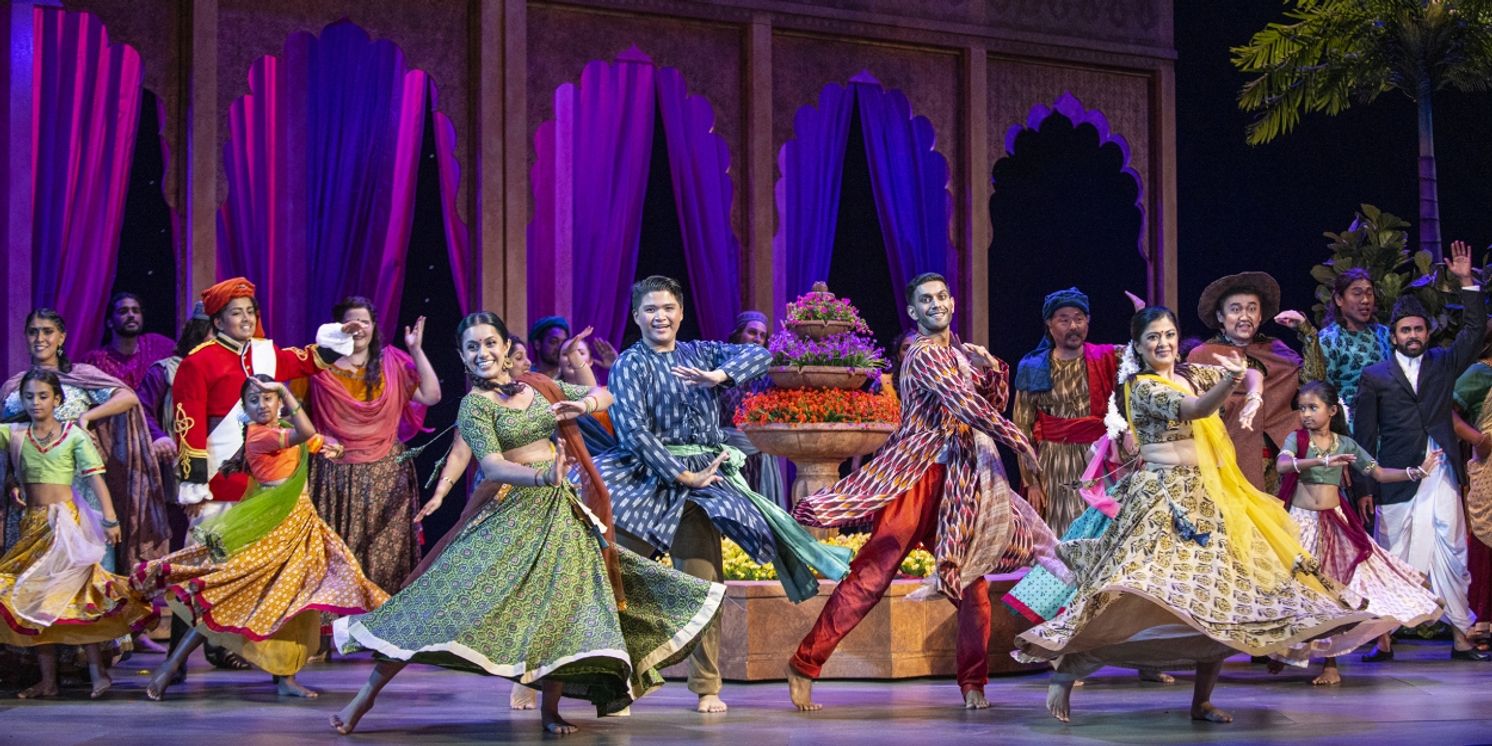
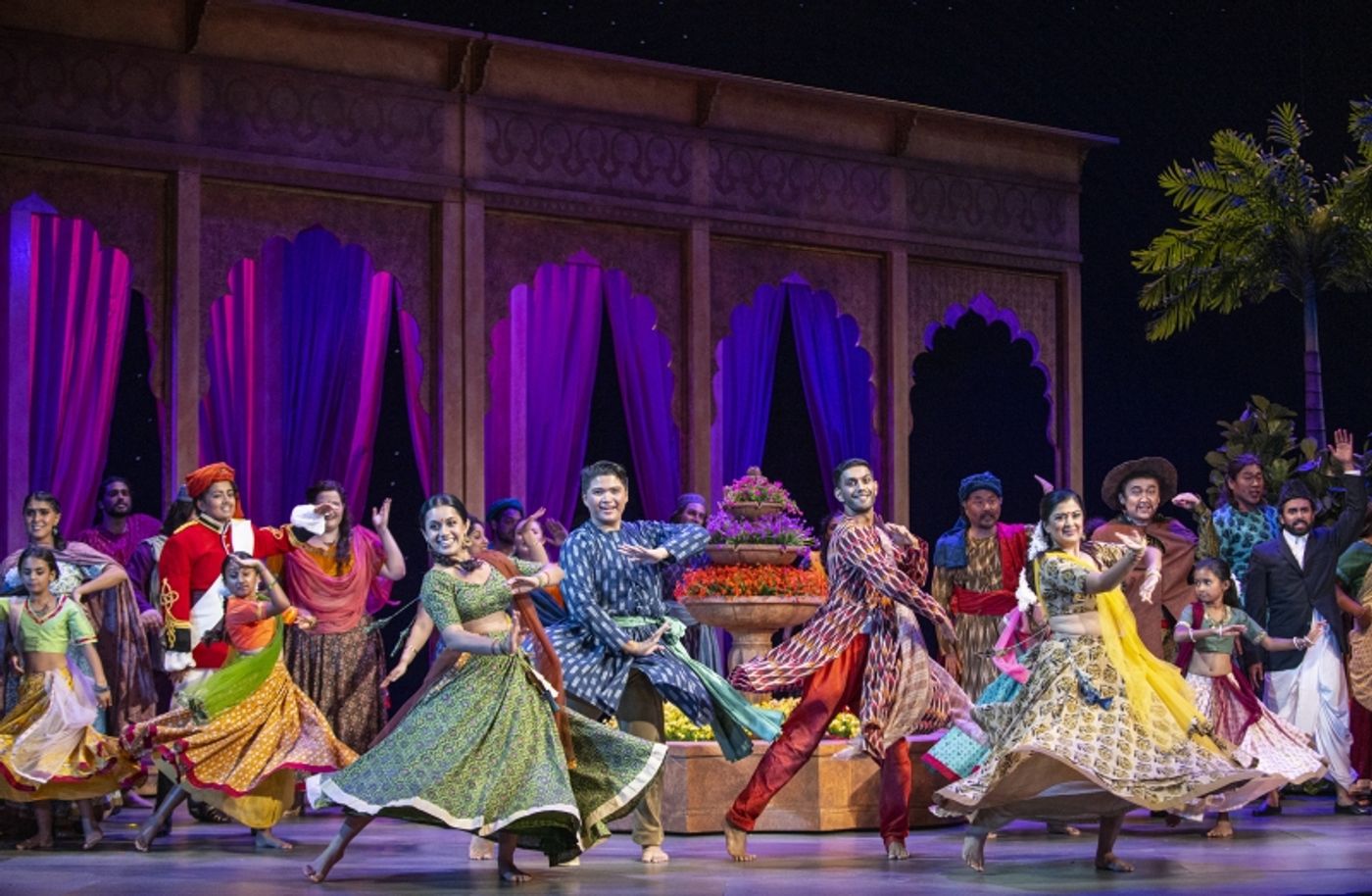
Opera San José's vibrant new production of Mozart's perennial audience favorite The Marriage of Figaro offers a host of pleasures, including a pair of luminous central performances and a stage awash in a riot of color. The latter is courtesy of resetting the opera to northern India, rather than Spain, even if a reference to one character's banishment to Seville seems to fudge this point. The change in locale is enhanced by the casting of many singers of Asian descent and is temperamentally in tune with the opera, as Mozart's effervescent music and DaPonte's lovestruck libretto seem to lead organically to the Bollywood-style dance number which concludes the production. Beyond the inclusion of some traditional Indian dancing and embedded cultural references (e.g. cricket bats appear during an Act I aria for Figaro), though, this is actually a fairly straightforward accounting of the opera, sung in the original Italian. The plot remains unchanged, centering on Figaro and his beloved Susanna, who are in the employment of Count Almaviva, who also has an eye for Susanna. If anything, I wish director Brad Dalton had taken things a little further in his rather light-handed approach as certain issues such as British colonialism are glancingly implied without being fully developed into significant themes.
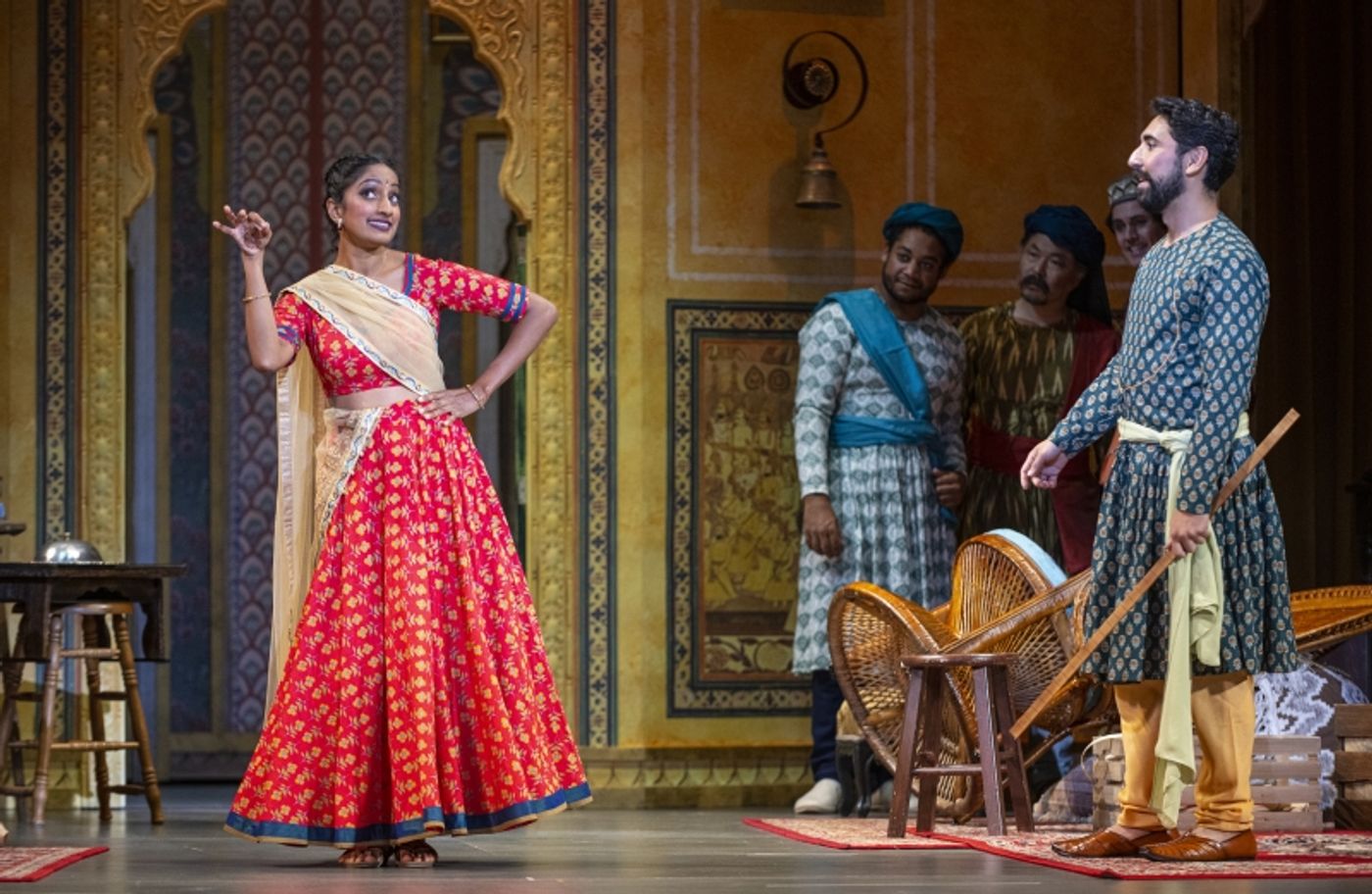
in Opera San José's production of The Marriage of Figaro
Despite its enduring popularity, Figaro can be a tricky opera to pull off. With so many individual characters given significant stage time and a plot-heavy libretto involving all manner of mismatched lovers, characters in disguise and family secrets finally revealed, the music can end up getting overwhelmed by the shenanigans. With its numerous ensemble passages, it's a tall order to keep all the plates spinning and everyone in the cast on the same page, and on that count the production largely succeeds, even if it occasionally lacks a sense of forward thrust over its three-hour-plus running time.
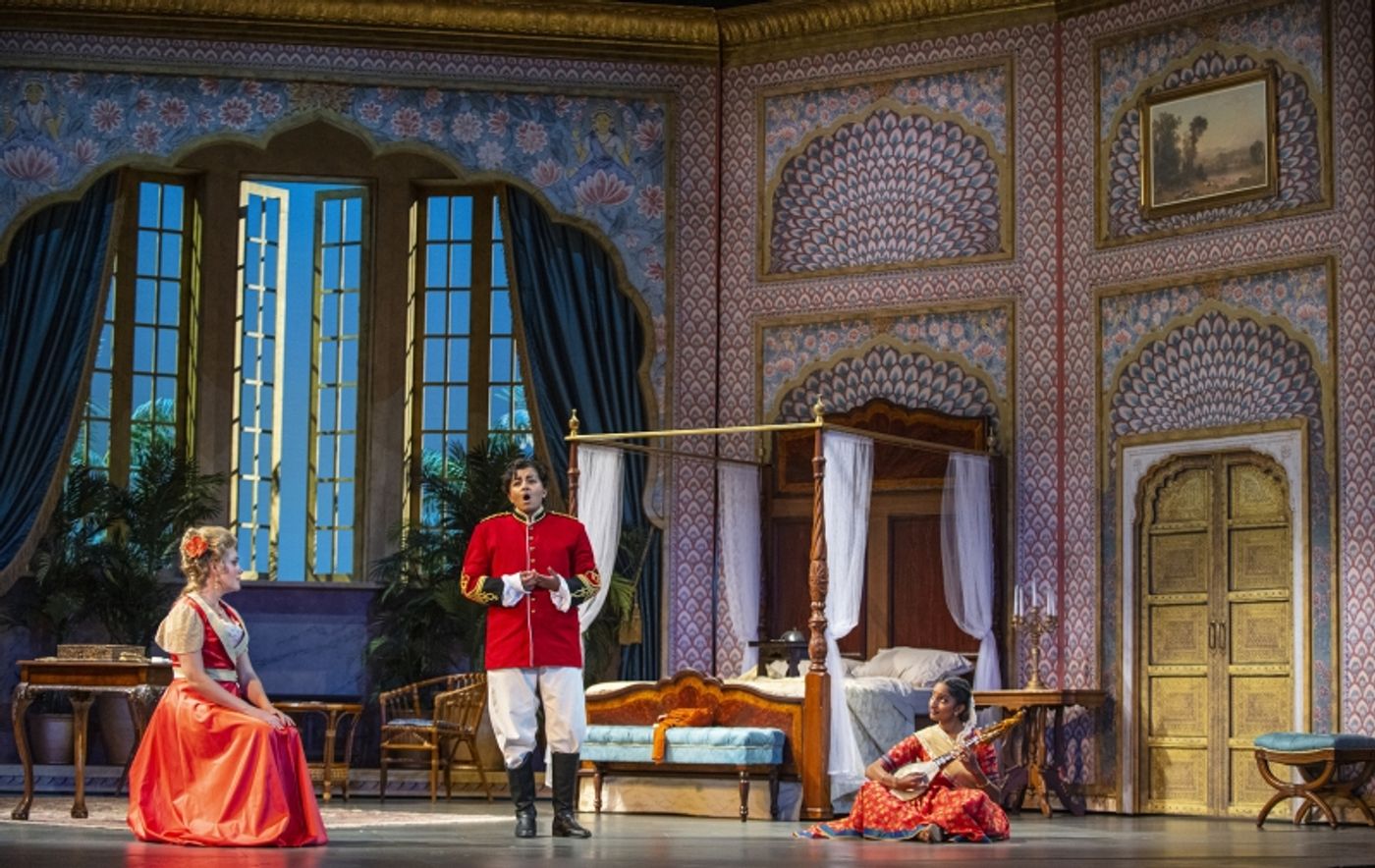
in Opera San José's production of The Marriage of Figaro
The numerous featured roles were all pleasingly sung and everyone seemed to know when to step into the spotlight and when to recede into the background. Mezzo-soprano Deepa Johnny as Cherubino gave a lovely account of the opera's most famous aria, "Voi che sapete," even if she seemed to struggle a bit to find a consistent physicality for her trouser role. Baritone Eugene Brancoveanu was an impressively large-voiced Count Almaviva, appropriately pompous without being totally off-putting. Soprano Maria Natale made an appealing Countess Almaviva, particularly in her ruminative Act II aria "Porgi amor" and her shimmering Act III "Che soave zeffiretto" duet with Susanna.
At the center of the production are two glorious performances by Efraín Solís in the title role and Maya Kherani as Susanna. While neither singer is the type to stun you with the sheer force of their lung power, both possess gorgeously expressive voices and warm and uncommonly winning stage presences. They sang beautifully throughout, bringing nuance and a lively musicality to Mozart's melodies while clearly articulating the text and playing the underlying emotions.
Solís was particularly effective in his plaintive, tragicomic Act IV recitative and aria, "Tutto è disposto / Aprite un po' quegli occhi" and followed that up with some deft, silent comic antics behind Kherani's meltingly tender "Deh vieni non tardar" aria, which was the highlight of the entire performance. The sheer beauty of Kherani's golden soprano is a wonder, as is her ability to infuse her character with spunk and wit to make it clear that Susanna might be caught in circumstances not of her own making, but she is no one's fool. She and Solís have a level of connection and chemistry that is rare in the world of opera and gives their scenes a wonderful sense of spontaneity. They are the very antithesis of the old-school "park and bark" style of opera performers.
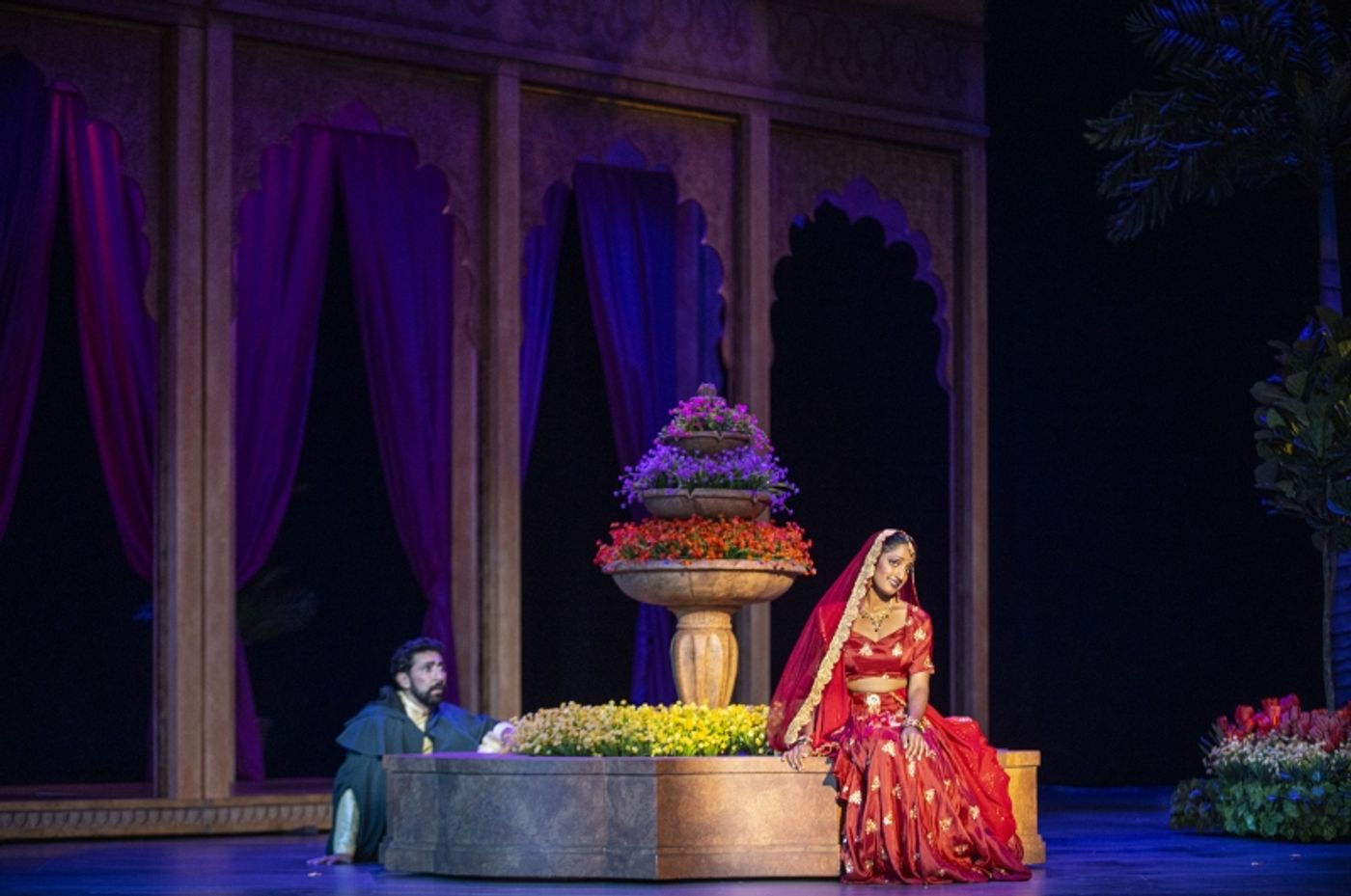
in Opera San José's production of The Marriage of Figaro
Scenic designer Steven C. Kemp provides a succession of eye-catching sets, each more striking than the last, including a lavish, peacock-inspired bedroom in Act II and a flower-bedecked fountain in Act IV backed by a golden arcade festooned with heliotrope drapes lit so luminously by designer Anshuman Bhatia that they practically seem to levitate. Costume designer Deepsikha Chatterjee makes marvelous use of an extravagant variety of Indian patterns and colors, but my favorite was actually her exceedingly simple, handsome cream-colored wedding suit for Figaro, accessorized with a vermillion scarf to match Susanna's ornate gown.
Conductor Viswa Subbaraman led the 36-piece orchestra in a crisp accounting of the Mozart score, ever attentive to the needs of the singers. Antara Bhardwaj's Indian classical and folk dance-inspired choreography is a good idea that felt only partially realized, culminating in a joyous, if rather truncated, Bollywood finale. Oh, how I wish she'd been given license to make the whole production really dance.
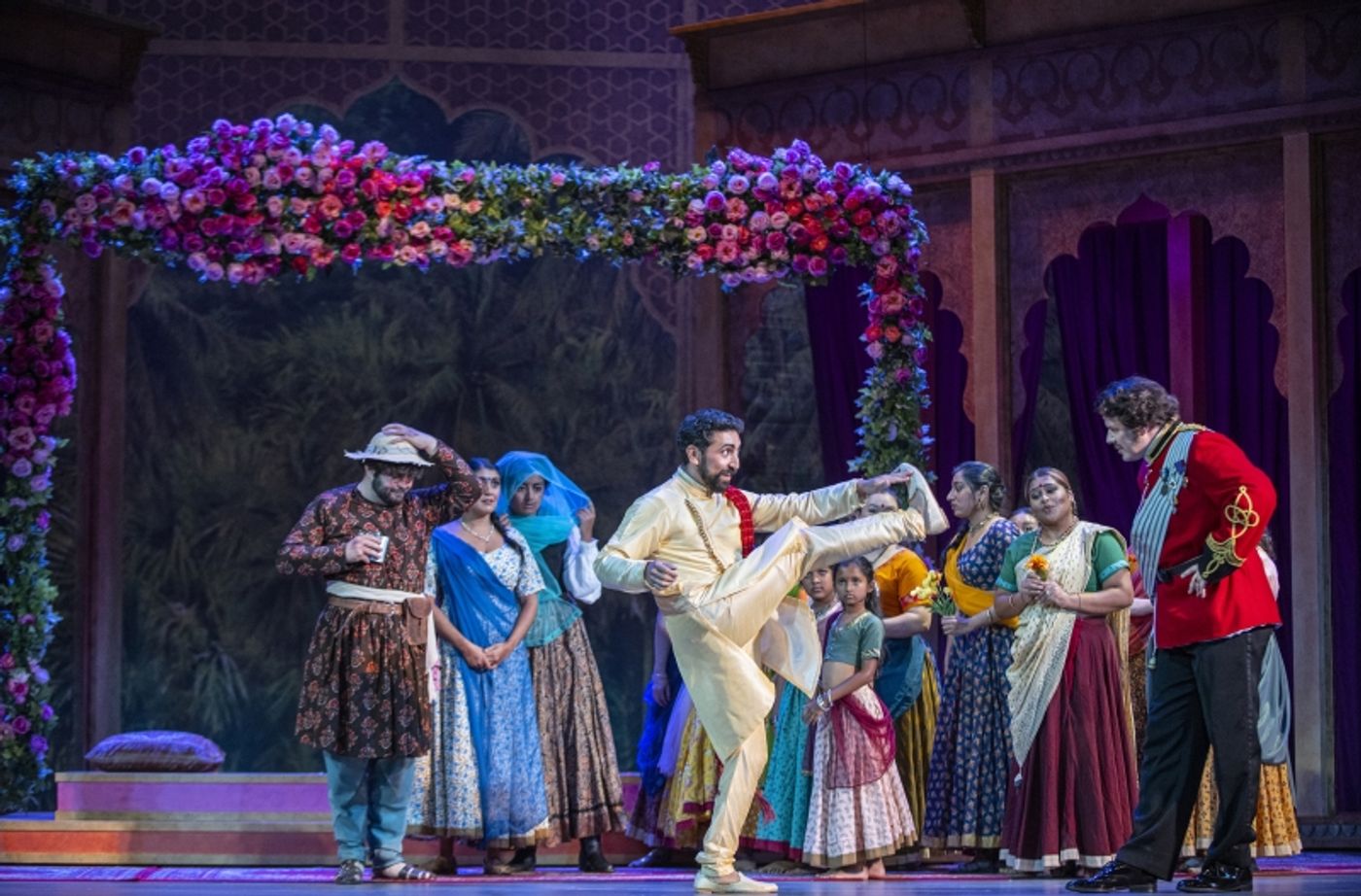
in Act IV of Opera San José's production of The Marriage of Figaro
Still and all, it's a richly rewarding evening. What a pleasure it is to experience grand opera in the relatively intimate confines of the beautiful California Theatre where you are close enough to the stage to really feel the energy coming from the performers. In its ability to produce work of this caliber, Opera San José proves once again that it is one of the gems of the Bay Area arts scene.
(all photos by David Allen)
Opera San José's production of The Marriage of Figaro is sung in Italian, with English and Spanish supertitles. Performances continue through September 25, 2022 at the California Theatre, 345 South 1st Street, San Jose, CA. Running time is approximately 3 hours 10 minutes, including one intermission. For more information or to purchase tickets visit operasj.org or call (408) 437-4450.
Reader Reviews
Videos

